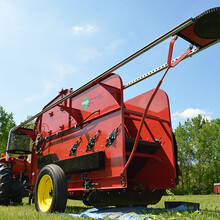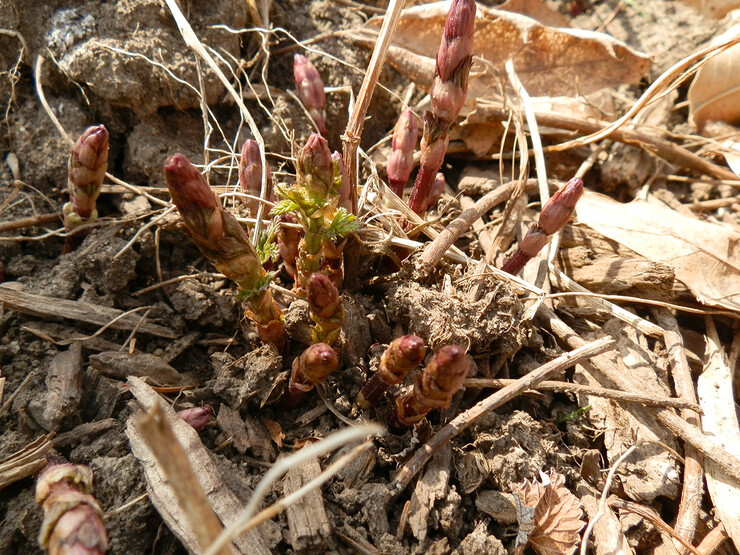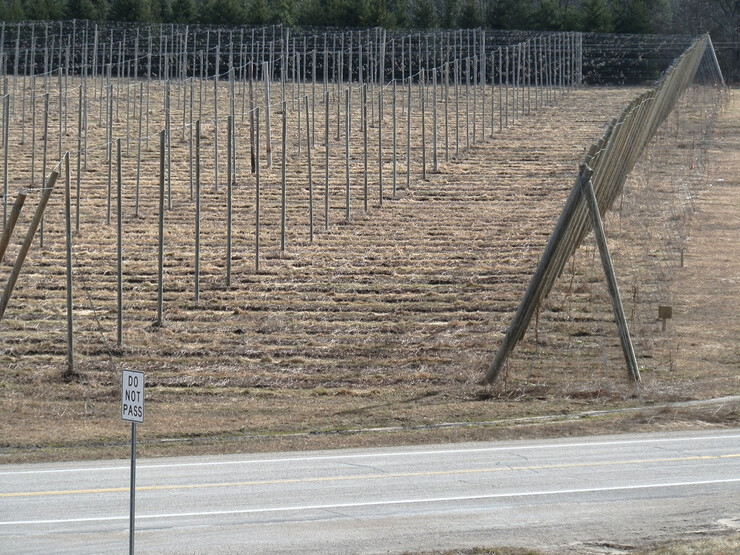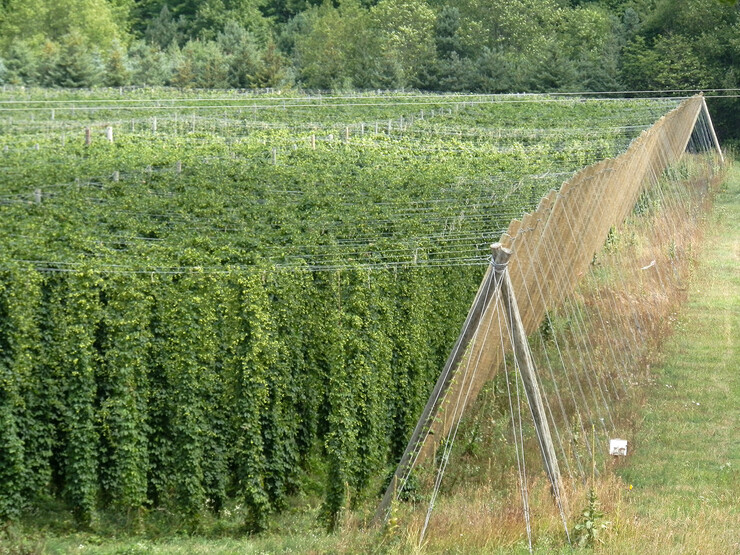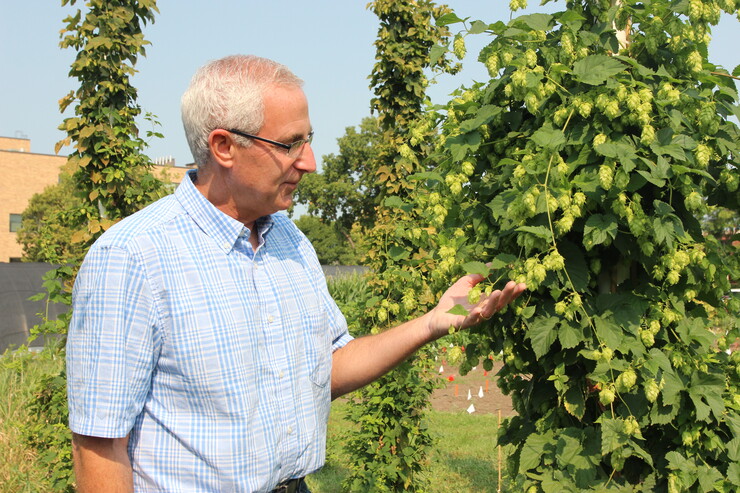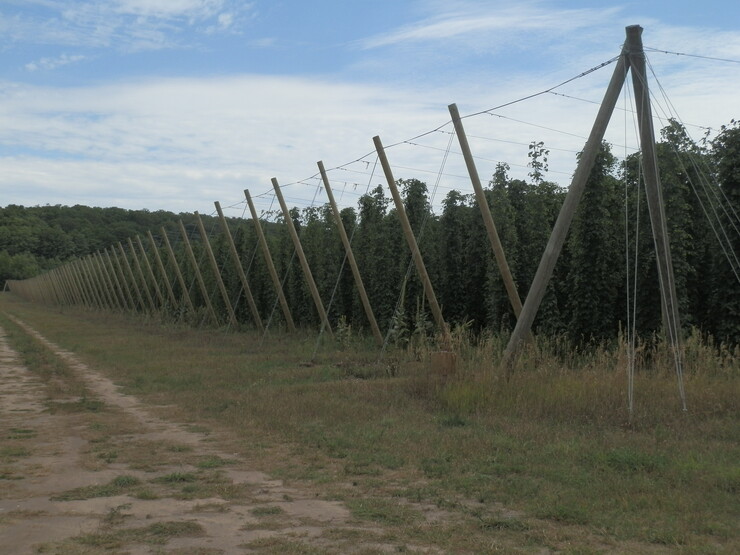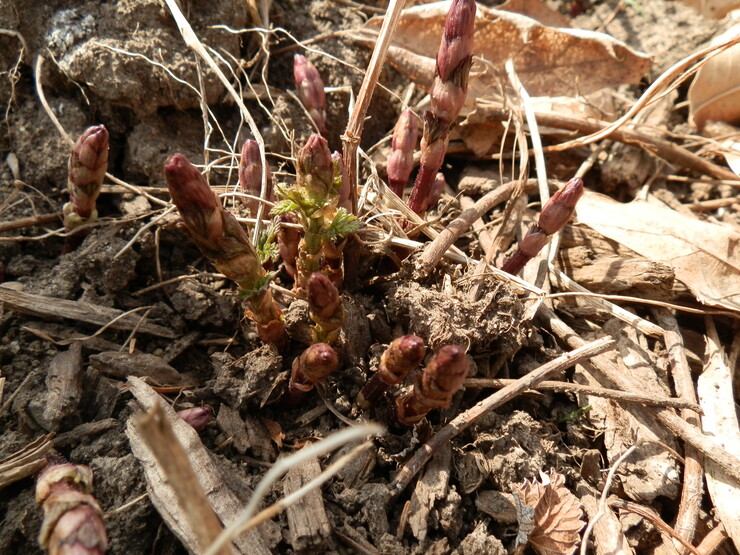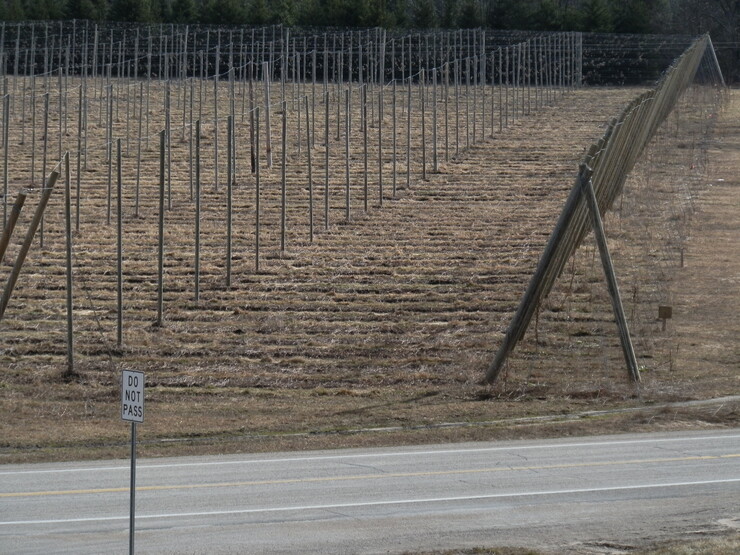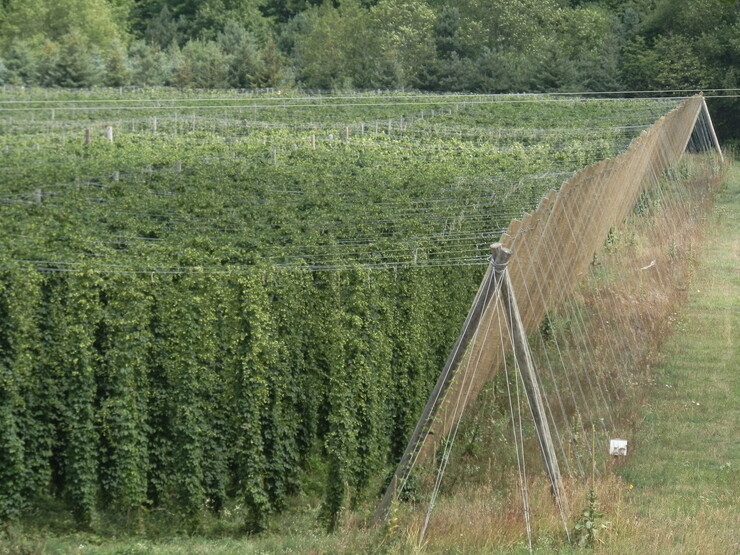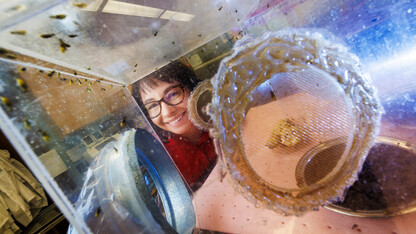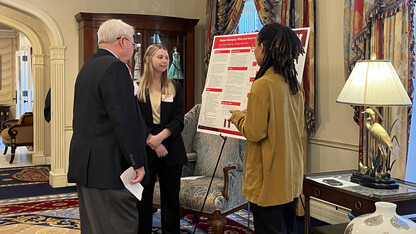· 5 min read
Project aims to increase hops production in Nebraska
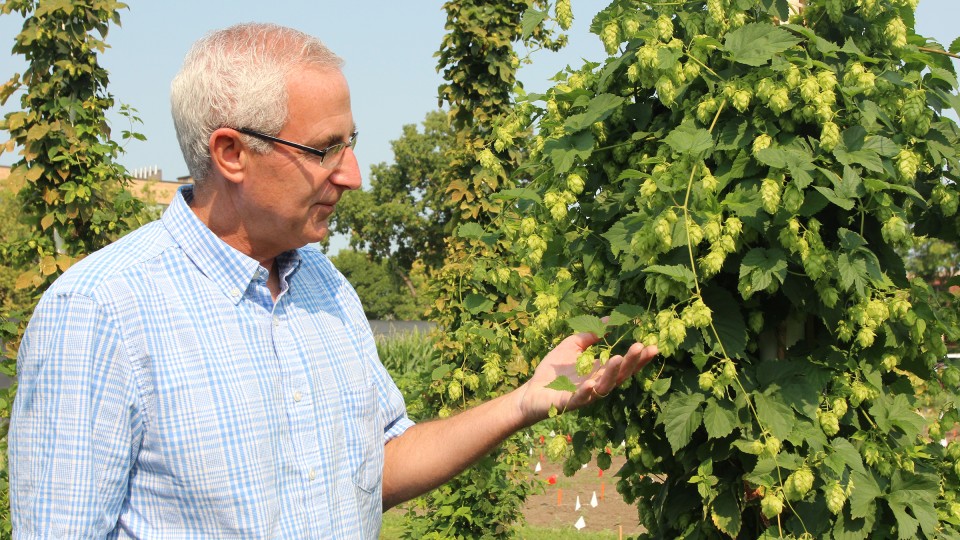
Potential is brewing in a new hops growing project led by researchers at the University of Nebraska-Lincoln.
Launching this summer, the Nebraska Hops project will test the viability of growing eight different hop varieties at five locations statewide. Led by Stacy Adams, associate professor of practice in agronomy and horticulture, the research project has the potential to expand hop production in Nebraska, helping better meet craft brewing demands for the pinecone-like blooms on the plant, while also offering farmers an opportunity to diversify crop production.
“Nebraska is on the radar as a state to watch in terms of hops production because our industry is just starting to emerge,” Adams said. “The Nebraska Hops project is designed to help develop that industry and show producers that growing hops is an opportunity to add an additional source of income.”
Hop plants are a perennial that are related to hemp and nettle plants. Hop is a fast-growing bine and produces small cones that, when properly dried, add flavor from bitter to citrus and provide a stabilizing agent in beer. Hops are also used in the floral industry and for making some pharmaceutical products.
More than 98 percent of American-grown hops are produced in Oregon, Washington, Idaho and Michigan, with most of those operations taking place on family-owned farms. And, like in many other Midwestern states, hops were grown in Nebraska before Prohibition.
“One of the most popular hop varieties grown before prohibition, (Canadian) red vines, still grows wild today,” said Trevor Schaben, a brewer and cofounder of Thunderhead Brewing in Kearney. “Actually, most of Nebraska is pretty good for growing hops. If the quality of the hop cone is there, a project like this has some real potential.”
Adams said that potential is further driven by the ever-expanding demand for hops by the craft brewing industry.
“Estimates show the nation must grow an additional 11,000 to 11,500 acres of hops by the year 2020 to meet demands of the microbrewing industry,” Adams said. “I’m not really a beer connoisseur and I started growing hops in our test gardens three years ago because I find them to be fascinating plants. But, I see Nebraska helping fill that demand for hops. They can be a specialty crop that produces a high-value commodity.”
Hop varieties to be tested through the research include Centennial, Chinook, Crystal, Perle, Willamette, Columbia, Cluster and Zeus. Cascade hops, the most popular variety currently being grown in Nebraska, were to be a part of the test, but were unavailable due to a poor 2015 growing season.
The five test fields will be on sites that offer a variety of soil and moisture conditions, including UNL’s East Campus and the Panhandle Research and Extension Center in Scottsbluff. The other three fields are owned by cooperating farmers in Valparaiso, Norfolk and Sutton.
Adams said the project’s primary purpose is to show that Nebraska can produce hops that offer consistent taste — which is a key detail for Nebraska brewers.
“Hop growers are struggling to keep up nationally and worldwide, but that doesn’t mean you can just grow them anywhere,” said Marcus Powers, a brewer and co-founder of Zipline Brewing in Lincoln. “Many breweries are interested in buying local when they can, so a project like this has potential for success. But, to do so, it must produce a high-quality hop that offers a consistent flavor profile every year.”
Currently, Zipline uses 8,000 to 10,000 pounds of hops annually. Powers said 70 percent of those hops are sourced from the Pacific Northwest, with the other 30 percent coming from Europe. Other ingredients in the Zipline brewing operation are partially sourced locally — including 10,000 to 12,000 pounds each of wheat and oats.
Powers and Schaben said UNL is an ideal candidate to lead the charge in experimentation with hops growing in Nebraska.
“UNL is in the best position to lead research into working with different varieties of hops and educating growers and brewers about how those varieties perform,” Powers said. “If the quality is there, brewers would welcome a good, local hop.”
Adams said the test sites will be geared toward small growers, or individuals who plant about two acres. The test sites also will be open to tours for producers, showcasing the entire hops growing process, from planting to harvest.
Other parts of the project include working with individual farmers and the Midwest Hop Producers to establish processing options for the hops, and possibly developing a specialized Nebraska hop with a unique flavor profile.
The project is funded through an $83,000 specialty crop block grant from the Nebraska Department of Agriculture.
Other Nebraska Hops team members include UNL’s Keenan Amundsen, Kim Todd, Charles Shapiro and James Schild.
For more information on the project, click here.
